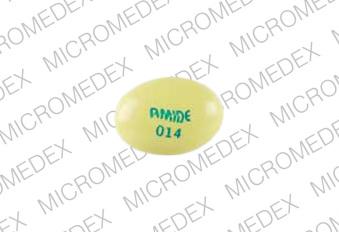Dexchlorpheniramine Dosage
Medically reviewed by Drugs.com. Last updated on Mar 7, 2025.
Applies to the following strengths: 2 mg/5 mL; 4 mg; 6 mg; 2 mg
Usual Adult Dose for:
Usual Pediatric Dose for:
Additional dosage information:
Usual Adult Dose for Allergic Reaction
Initial dose: 2 mg (1 teaspoonful) orally every 4 to 6 hours, or 4 to 6 mg of the timed-release preparation at bedtime or every 8 to 10 hours
Usual Adult Dose for Allergic Rhinitis
Initial dose: 2 mg (1 teaspoonful) orally every 4 to 6 hours, or 4 to 6 mg of the timed-release preparation at bedtime or every 8 to 10 hours
Usual Pediatric Dose for Allergic Reaction
2 years to 5 years: 0.5 mg (1/4 teaspoonful) every 4 to 6 hours for children 2 to 5 years old (do not use timed release)
6 years to 11 years: 1 mg (1/2 teaspoonful) every 4 to 6 hours, or 4 mg of the timed-release preparation at bedtime
Usual Pediatric Dose for Allergic Rhinitis
2 years to 5 years: 0.5 mg (1/4 teaspoonful) every 4 to 6 hours for children 2 to 5 years old (do not use timed release)
6 years to 11 years: 1 mg (1/2 teaspoonful) every 4 to 6 hours, or 4 mg of the timed-release preparation at bedtime
Renal Dose Adjustments
Data not available
Liver Dose Adjustments
Data not available
Dose Adjustments
Dosage should be individualized according to the needs and the response of the patient.
Precautions
Dexchlorpheniramine is contraindicated in newborns or premature infants and in nursing mothers.
As in adults, antihistamines may diminish mental alertness in children, in the young children particularly, they may produce excitation.
Because antihistamines may have potent anticholinergic properties, dexchlorpheniramine meets Beers criteria as a medications that is potentially inappropriate for use in older adults.
Dialysis
Data not available
Frequently asked questions
More about dexchlorpheniramine
- Check interactions
- Compare alternatives
- Reviews (7)
- Drug images
- Side effects
- During pregnancy
- Drug class: antihistamines
- Breastfeeding
- En español
Patient resources
Other brands
Professional resources
Other brands
Related treatment guides
See also:
Further information
Always consult your healthcare provider to ensure the information displayed on this page applies to your personal circumstances.


